Watch the video
Receive Focus insights straight to your inbox
Addressing inequality and unemployment to support the approximately 49 per cent* of South Africa's citizens who still live below the poverty line remains an imperative task for government.
To assist the most vulnerable in our society, government supports 27 per cent of South Africans via social grants, but the scope for impactful and sustainable social support remains limited when it comes to alleviating poverty.
Social grant recipients, for example, receive just R1,780 per month – a mere R600 above the 2018 upper-bound poverty line of R1,183. Citizens older than 75 years get R1,800pm, those with disabilities receive just R1,600pm, while childcare grants offer a mere R380pm. While these payments provide some degree of financial support, more is needed to deliver meaningful and lasting economic liberation.
One way to lift more South Africans out of poverty is to grow the economy, create more permanent jobs that offer a sustainable source of income, and broaden access to essential formalised services such as banking, which requires greater collaboration between the private and public sectors.
While South Africa compares favourably to other African nations in terms of access to financial services, some 11 million citizens remain unbanked or underbanked. Yet, reaching this ‘missing middle’ to broaden access to affordable, relevant and sustainable financial products and services is a critical step towards addressing the poverty and inequality that still pervades society today.
Searching for solutions
Access to banking facilities and the flow of transactions in commerce boosts the economy. However, to make sure this is sustainable, it is important for financial institutions to build products based on the unique requirements of this segment, like taking into account financial literacy.
However, traditional banks alone are unable to solve this challenge due to issues such as distribution constraints, the relatively slow pace of innovation within the legacy banking model, and inflexible base cost structures.
As such, the opportunity exists for tech players, fin-tech startups and social entrepreneurs that hold a deep understanding of the unbanked market to apply digital technologies to address this complex problem.
Digital-led innovation holds the potential to create the economies of scale required to lower banking and transaction fees to deliver more affordable services while leveraging the mobile platform business model to circumvent the distribution challenge.
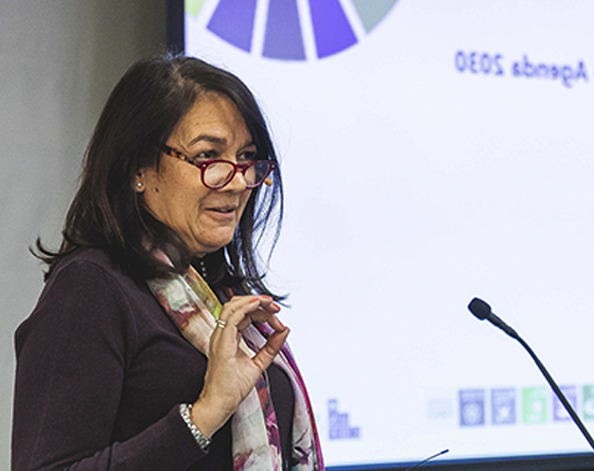
If you can get people included into formal financial services, they have a greater chance of uplifting themselves out of poverty.
Pushed back into poverty
Nikki Kettles from FinMark Trust, is a leading expert in financial inclusion for the intergovernmental Southern African Development Community (SADC). She delivered the keynote address on financial inclusion at the Investec Tech4Good inaugural event in May. The event also included presentations from innovative tech companies such as Mama Money, SweepSouth and Abalobi, who were used as valuable local case studies to lead the discussion about solutions.
During her presentation, Kettles expressed her reservations regarding statistics that suggest more than 60% of South Africans have a bank account.
She believes this doesn’t offer an accurate reflection of the situation because many immediately withdraw all available funds in an account after a deposit is made, be it wages, a funeral policy payout, or a beneficiary fund payment.
“Moreover, it’s not only the older generation who rely on cash but overwhelmingly the youth do so as well.” Kettles conceded that getting unbanked people into a formal banking system is challenging.
“While South Africans’ average income has improved over the last decade, and average household sizes have declined as a result of increased inequality, the deep pockets of poverty persist," suggests Kettles.
“The challenge of growing the ‘missing middle’ is often restricting equitable development. The fear is that large portions of society will be pushed back into poverty. But it’s not the traditional banks that will solve this challenge alone.”
The task will become a partnership between banks and fintech innovation and new investment models, which will change how we address this challenge by lowering the barriers to entry with cheaper fees, intuitive mobile platforms that are easy to understand and use, and improving access to information that empowers citizens to take control of their financial future. And once more people enter this ecosystem, they will further benefit from easier access to other products and services.
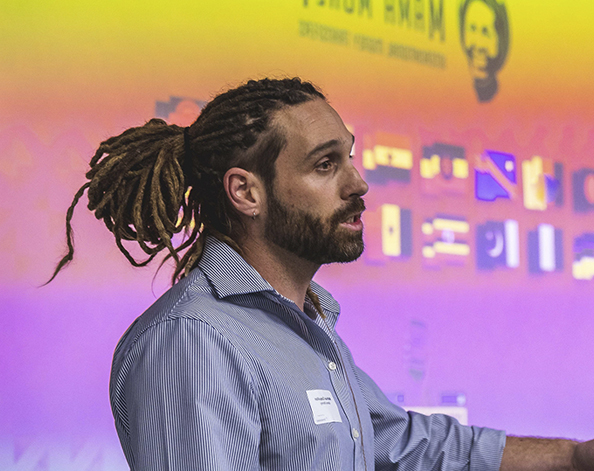
We look at our business as a poverty alleviation programme that is dressed up as a remittance company.
Tech is nothing without trust
A case in point is Mama Money, an app-based platform that enables local or cross-border mobile remittance. This service allows primary breadwinners to send money to their families using a feature phone, smartphone or computer.
Market research firm Statista expects South Africa's digital remittance transaction volume to reach US$172m in 2019, and predicts that this figure will grow to US$333m by 2023**. It's an increasingly pervasive technology-enabled financial service used by both local and international migrant workers.
However, despite offering the lowest fees in the industry, and the fact that the company is licensed by the South African Reserve Bank, it took time for Mama Money to build trust among consumers due to a combination of factors, many of which are legacy issues.
For instance, traditional remittance platforms that wire transfers are expensive, which impacts significantly on the amount of money families receive. These high fees also had a disproportionate impact on low income earners, and made the service unaffordable for most.
As such, the only feasible way for workers to get money to their family was to entrust cash to an acquaintance who was travelling back home. Shifting away from this entrenched practice and trusting that technology would perform the job more effectively was a major challenge.
“We do a lot of community engagement and activation to build trust in the process and a willingness to use the product,” explained Mama Money co-founder, Mathieu Coquillon.
Another way that Mama Money built that trust was by establishing more than 1,000 local agents who could assist individuals on a face-to-face basis. Over and above the employment opportunities this created, it also exposed more customers to the technology that enables the Mama Money service.
As consumer trust in the service grows, clients become empowered to bank, transact and even save directly on their phones without ever visiting a bank branch. It's a powerful example of how digital-led innovation can not only broaden access but also builds resilience.
And now, for the first time, people can begin to create wealth with mobile money. According to FinMark Trust, financial sector regulators in countries like Tanzania and Ghana allow people to earn interest on mobile money, and an increasing number of SADC countries will soon adopt this approach.
To facilitate this offering, service providers keep mobile wallet holders’ money in escrow. The funds, held in a separate commercial account, earn interest over time and between the banks and service providers, an appropriate interest rate can be agreed upon and paid out to individual consumers. This is will encourage formal savings among the low-income market and is the foundation on which wealth creation is built.
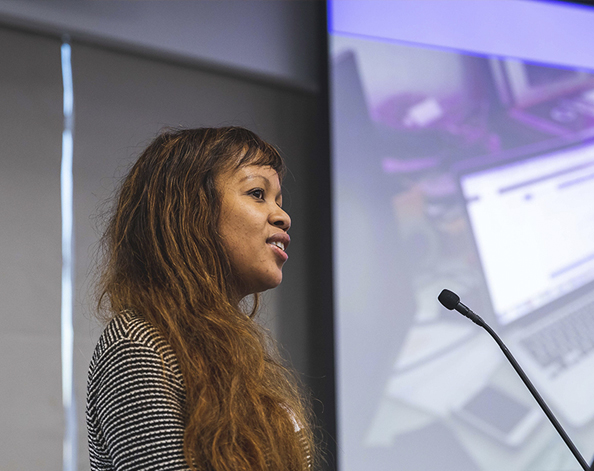
We view the phone as something that can be used to really open the world up to people and get them opportunities that would otherwise not be available to them.
Platform model key to financial inclusion
Offering another example of how technology can economically empower more South Africans through job creation and financial inclusivity is SweepSouth.
The company leverages an app-enabled platform to meet the demand for home cleaning services by instantly connecting customers with a cohort of unemployed domestic workers. Booking and paying a cleaner is done with a few simple taps on the screen to creates a seamless, user-friendly experience.
However, more than merely creating an active business network, the service also educates. While building the platform, the founders discovered massive inconsistencies around domestic worker remuneration in South Africa. As a result, they identified the need to educate consumers about fair industry standards, and have since published numerous reports, articles and resources on the subject.
More significantly, as the platform grew, the founders developed a deeper understanding of the needs of the cleaners. Aisha Pandor, CEO and co-founder of SweepSouth, believes one of the greatest benefits of the platform is the stepping stone it offers to gainful full-time employment.
As the service grew, data uncovered the overwhelming number of young women who used the platform to find work, albeit inconsistently.
However, some of these women have successfully used the income the service generated to further their education and secure better employment opportunities.
During the event, Pandor shared the inspirational stories of two SweepSouth cleaners – one who used the service to pay her way through university and obtain a law degree, and another who landed a job as a developer through the connection she established while working as a cleaner.
Pandor added that in addition to growing a true market network system between cleaners and homeowners, SweepSouth also seeks to provide additional products and services to its community.
For example, the company integrated a basket of financial products, including micro-insurance such as funeral, life and disability cover, which helps to build the financial resilience of the women with whom they work. And thanks to the efficiencies created by using digital technology to solve complex problems, integrating these plug-ins on the platform could be more simple and cost-effective.
“To us, that is the value of any digital platform – as the network effect grows the connections, the impact and value it creates grows exponentially,” explained Pandor.
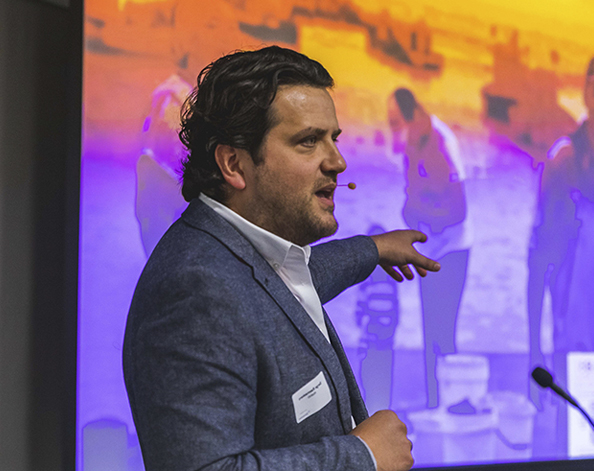
What is exciting about our platform is that we are using our fishers' cellphones to formalise an otherwise informal fishery ecosystem.
Enabling small-scale entrepreneurs
Similar to SweepSouth, Abalobi is an app originally developed in collaboration with the UCT fishery unit to research the sustainability of fish stocks.
Serge Raemaekers, a fisheries researcher and managing director of Abalobi, explained how the team realised that the geolocation and predictive analytics technology used to trace and track fish stocks could promote low-impact fishing (catching only enough to meet demand), while helping to grow the contribution that small-scale fishers make to the overall fishing industry.
The team subsequently pivoted the business to this commercial model and is now revolutionising the fishing community in the Western Cape by giving small-scale fishers direct access to the local marketplace by connecting them to local chefs at some of the best restaurants in Cape Town.
The transparency the app creates empowers fishers in terms of pricing, while restaurant chefs like Liam Tomlin and Luke Dale Roberts benefit from instant access to the highest quality, freshest fish.
The ‘Catch of the Day’ served to patrons now comes with its own narrative, or what Abalobi calls ‘fish with a story’. “We believe this valorises their skill as artisanal fishers,” says Serge, “and gives them a voice in the market, often for the first time.”
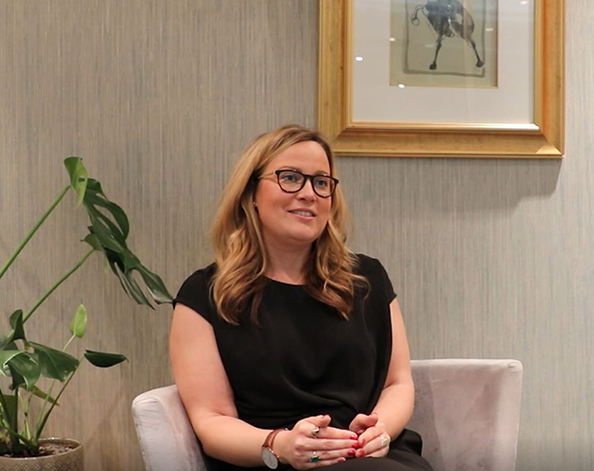
We need to start thinking of value creation and profit generation in different ways.
A conduit for impact investment funding
All of the use cases shared at Tech4Good, and the various programmes run by FinMark Trust in the SADC region, showed us the complexity of the ‘wicked problems’ facing people and the planet, which can be unwieldy and often have far-reaching ripple effects.
The enduring message to emerge from the event is that we can’t keep thinking of solutions to these problems in traditional ways. We require innovative, outside-the-box thinking that applies systemic approaches and sustainable models.
One way to make these solutions sustainable is a new paradigm that combines profit and purpose. This means that with a business-type model, ventures like the examples shared at the event become more financially resilient and are no longer entirely reliant on donor
funding to implement change, or for survival.
The reality, though, is that there are more problems than there is funding. To solve for this challenge, the Bertha Centre suggests innovative finance models such as Impact Investing as a mechanism to fund these ventures, as it leverages the growing pool of global investors who seek to generate social and environmental impact alongside financial returns.
And with more access to funding, technology-enabled impact ventures will empower us to achieve scale more cost effectively, and it is through scale that we can start to broaden the impact and benefit of these initiatives.
MORE INSIGHTS: Stephen Koseff talks to Aunnie Patton Power about impact investing
*Statistic based on the Living Conditions Survey (LCS) part of Stats SA’s household survey programme
**Digital Remittances South Africa, Statista
About the author
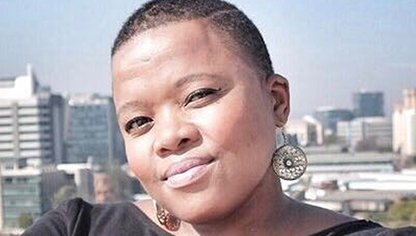
Karabo Sekhoto
Digital content specialist
Karabo is has worked as a freelance content creator for over 10 years, producing content for various web-based platforms, television productions and print publications both locally and internationally. She currently creates videos and podcasts for Investec Private Banking.




